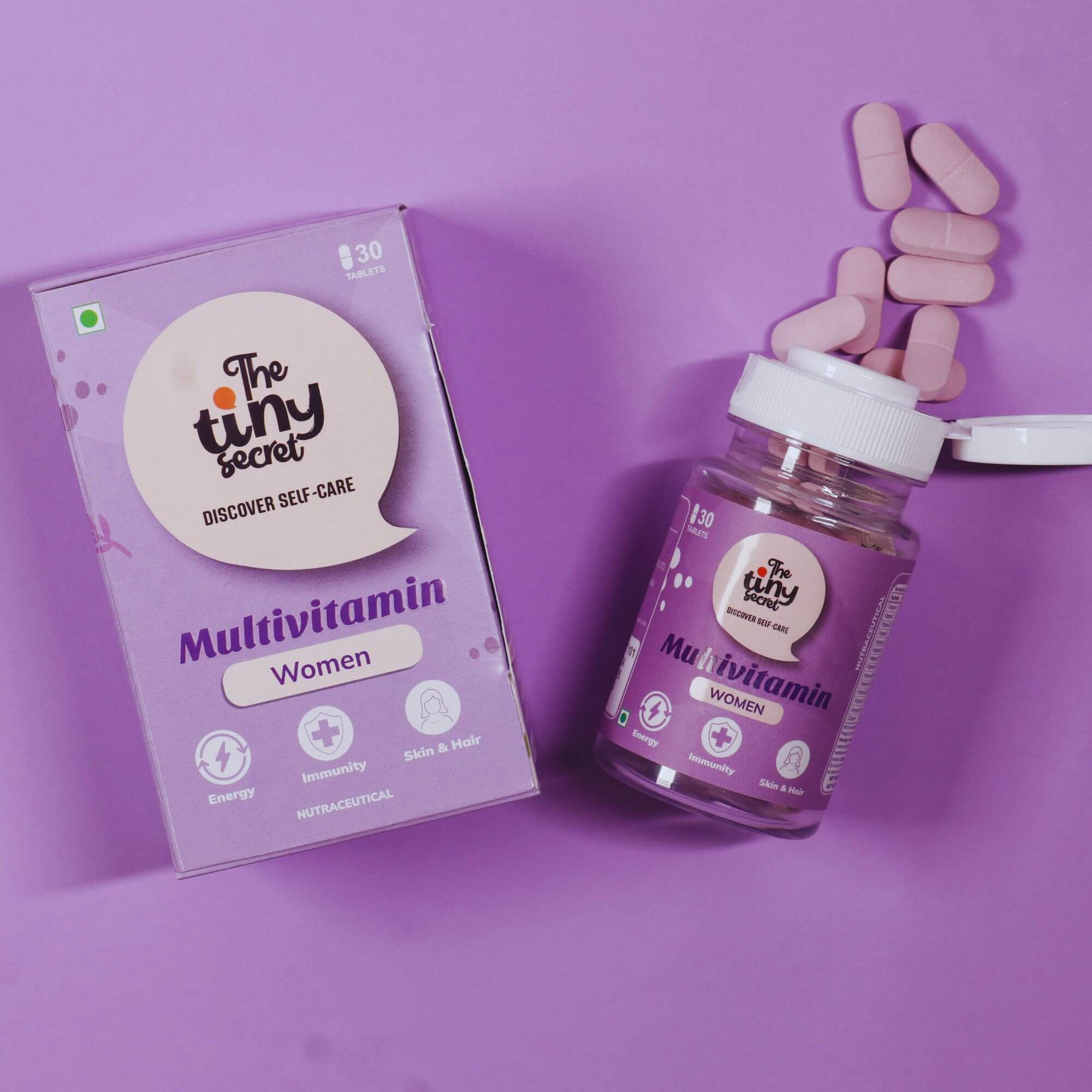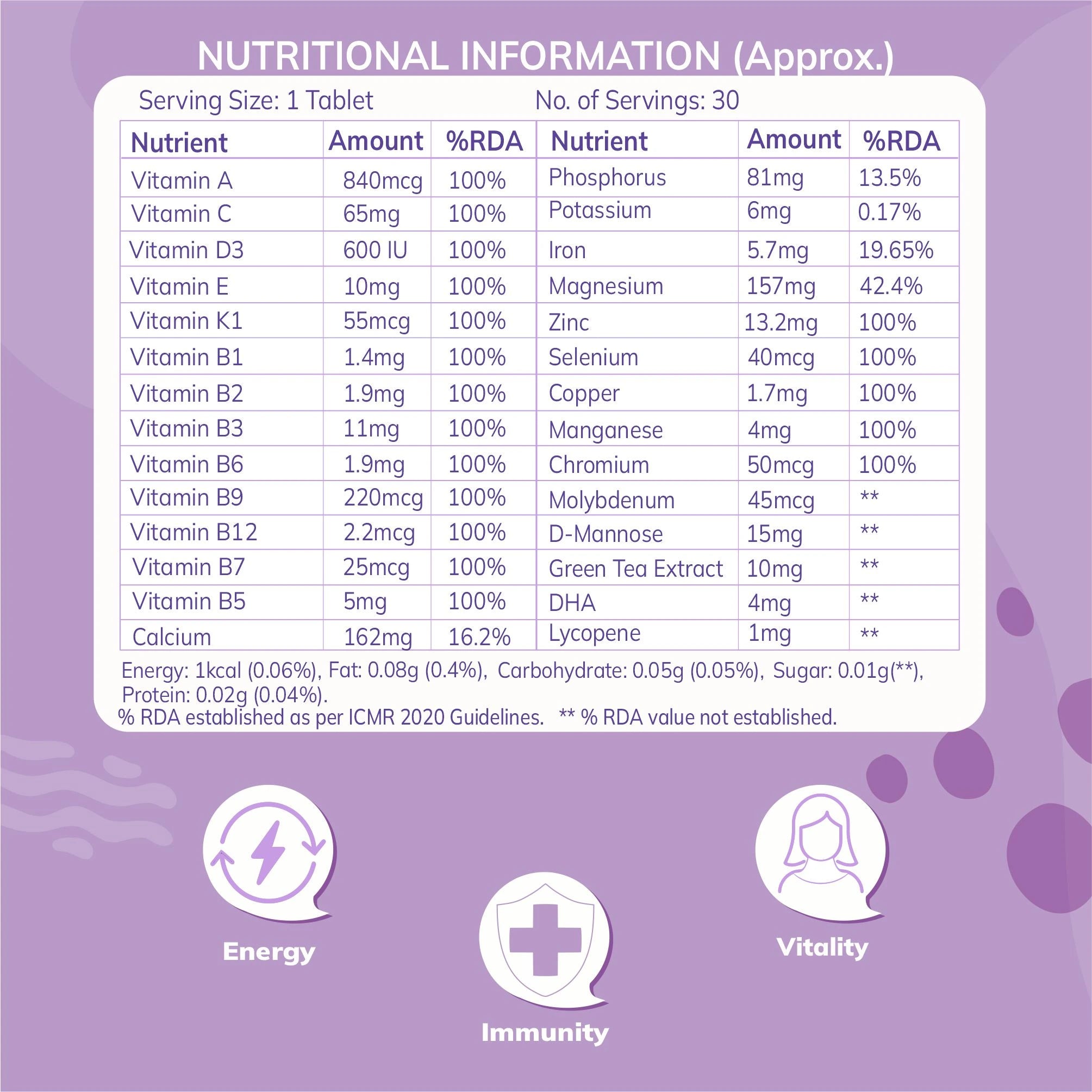

FAQs
How do multivitamins support overall health and wellness?
Multivitamins support overall health and wellness by providing essential vitamins and minerals that may be missing from your diet.
They help fill nutritional gaps, boost energy, support immune function, promote healthy skin, and contribute to proper bodily functions like metabolism and bone health.
How do multivitamins for women change after menopause?
Since the risk of osteoporosis rises after menopause, women's multivitamins frequently contain increased levels of calcium and vitamin D to support bone health.
They might also contain higher levels of magnesium for heart and muscle health and vitamin B12 for energy and cognitive support. To help control hormonal fluctuations, they may also contain phytoestrogens. These modifications aid in addressing the particular health requirements following menopause.
Can multivitamins replace a balanced diet?
Multivitamins can supplement a balanced diet, but they don't offer the full spectrum of nutrients found in whole foods.
A balanced diet includes fiber, antioxidants, and healthy fats, and relying solely on supplements can lead to imbalances.
Do women need different multivitamins than men?
Women need different multivitamins than men due to their specific nutritional needs. They need higher iron levels for menstruation, pregnancy, and general health, folic acid for reproductive health, calcium and vitamin D for osteoporosis prevention, and magnesium and vitamin B12 for overall wellbeing.




